
National Assembly Resolution to remove obstacles and bottlenecks to promote business investment and unblock capital flows - Photo: QUANG DINH
The National Assembly's discussion session on socio -economics and state budget still has many concerns and worries as administrative procedure reforms, reduction of business conditions, and improvement of the investment environment are barriers hindering businesses and people.
Worry about the complex procedures that make it difficult to mobilize investment resources
Delegate Phan Duc Hieu ( Thai Binh ) pointed out that the biggest challenge is to fully implement the spirit of the National Assembly's resolutions on private economic development and institutional reform. Concerned about the quality of reform in a substantive and practical way, Mr. Hieu said that reform needs to meet the requirements of businesses and development.
He cited: at the recent dialogue conference between the Prime Minister and the business community, there was a proposal to abolish a directive of the Prime Minister from 2012 (still in effect).
When studying Directive 07 dated March 2, 2012 of the Prime Minister, he was quite surprised when the content required focusing investment projects in industrial parks and industrial clusters, causing some localities to still apply it and there were very large investment projects that were difficult to implement.
According to the business, to achieve the goal of industrial development, some specific projects such as factories producing hydrogen and green ammonia need water; or factories producing super-sized and super-heavy equipment and components must be located close to the coast, near seawater to take advantage.
While industrial clusters and zones are often far from the coast, taking advantage of their advantages is difficult, affecting the efficiency of investment projects and the general infrastructure system.
Assessing the recent reduction of business investment conditions and abolishment of sub-licenses, which has been "relatively successful", delegate Ha Sy Dong (Quang Tri) expressed concern that these conditions are showing signs of returning.
For example, in the field of rice export, Decree 109 previously required very high conditions for rice export business and by 2018, the business conditions were greatly reduced. However, recently, the draft amendment to Decree 107 requires businesses to own warehouses and are not allowed to rent warehouses.
Citing data from the VCCI report on the provincial competitiveness index and the flow of business laws, it shows that investment in projects using land in Vietnam is still like a jungle of procedures, from applying for construction planning, land use planning, investment policy approval, design appraisal, environment, fire prevention and fighting, land use fees, construction permits, and project acceptance.
In particular, businesses are increasingly finding it difficult to access land or build factories. While in 2021, 55% of businesses had easy access to business premises, by 2024, only 33% had. The biggest problem is the length of time it takes to complete procedures, especially land valuation procedures. Most procedures are longer than prescribed or have to be repeated many times.
"With such a jungle of procedures, it is difficult for us to mobilize private investment capital to serve growth. According to calculations, the investment rate must be over 40% to maintain high growth," said delegate Dong.
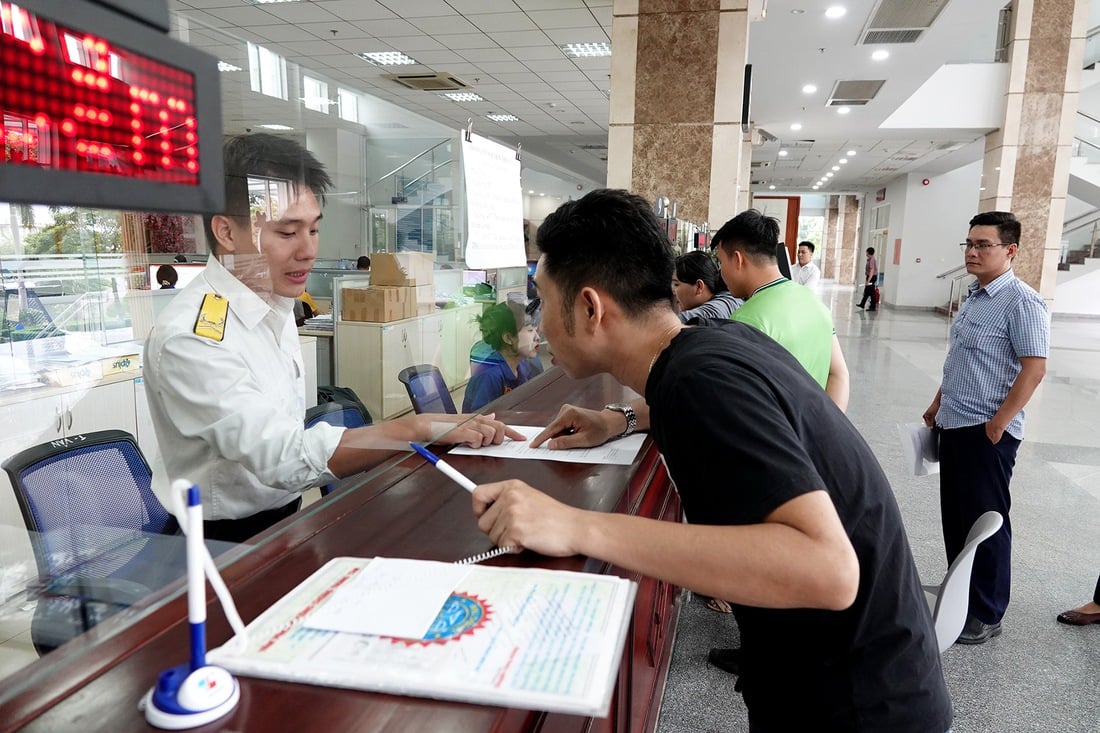
People do tax procedures at the Ho Chi Minh City tax office - Photo: TTD
Establish a working group to review the actual barriers
Similarly, delegate Tran Huu Hau (Tay Ninh) said that the whole country is preparing best for the nationwide explosion of the revolution on July 1, but to realize the results, it is necessary to resolve the remaining paradoxes.
That is the situation of slow disbursement of public investment when the project is built, appraised, approved by the State, the land is managed by the State, the implementing unit is also chosen by the State... but every year "when the appointment comes around", it is said to be slow and stagnant.
Therefore, Mr. Hau believes that "if money is available at home but not used, it is difficult to invite others to put money in, and it is difficult to create strong openness for investment from the private sector and foreign countries".
Mr. Hau gave an example: a family member went to apply for a road boundary certificate for a plot of land in a big city. Although the area had a 1/500 plan approved by the City People's Committee, each specialized agency had different requirements.
When the Department of Economic Infrastructure and Urban Areas requested confirmation from the Department of Agriculture and Environment on the current map, the answer was "there is no such procedure so it cannot be confirmed". Therefore, from the Prime Minister's recent directive on abolishing construction permits, if implemented, it will eliminate many paradoxes and complicated procedures...
Delegate Hau hopes that the Prime Minister and the Government will consider removing many unnecessary regulations to eliminate a series of related regulations that are making it difficult for people and enforcement agencies.
According to many delegates, it is necessary to have a revolution to review regulations that are hindering the investment and business environment of people and enterprises, and to carry out more substantial and effective reforms. Therefore, delegate Ha Sy Dong suggested that the Government must be very determined on this issue on the basis of establishing a working group consisting of many economic and legal experts to remove and simplify investment procedures, focusing on cutting, merging or connecting administrative procedures.
* Delegate PHAN DUC HIEU (Thai Binh):
Immediately review documents contrary to the spirit of Resolution 68
I hope that the Government and the Prime Minister need to immediately conduct a comprehensive review of documents that are contrary to the spirit of Resolution 68 on the private economy, and documents that cause obstacles and difficulties for people and businesses, and abolish them immediately.
This review is carried out on the basis of establishing a systematic independent review team of experts in each field - including legal experts, economic scientists and representatives of the business community.
In the long term, it is necessary to establish an institutional reform committee under the Government to maintain long-term and sustainable reforms. This will help to easily detect each regulation, create additional support for ministries and branches to review, provide criticism, barriers, and create pressure for substantive amendments...
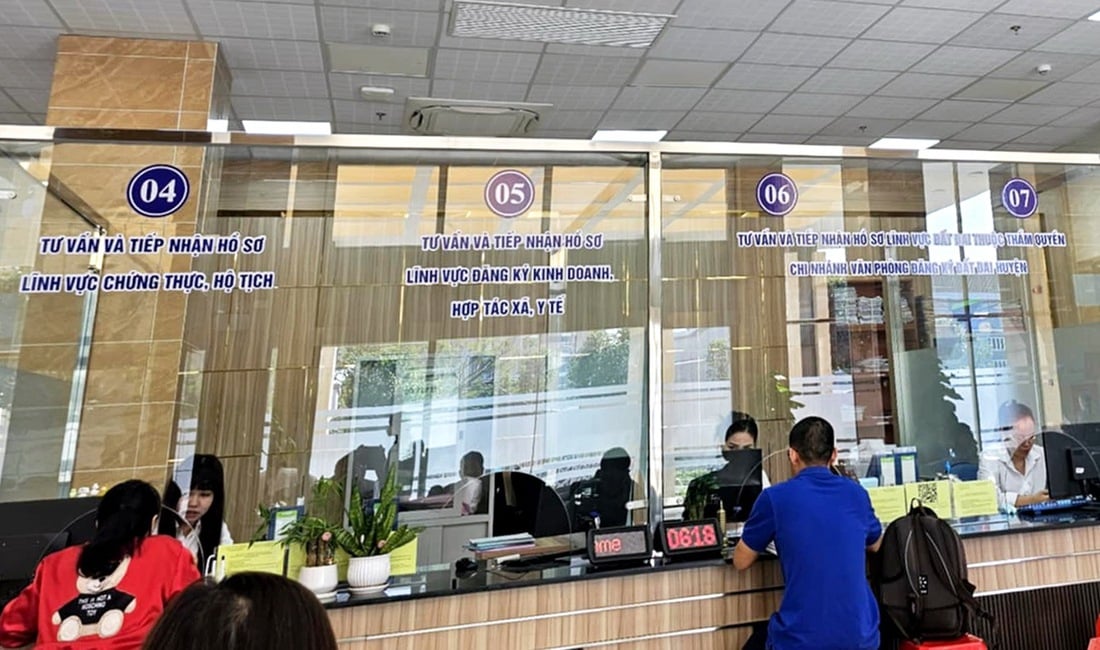
People come to do procedures at the reception points of the Binh Duong Provincial Public Administration Service Center located in the communes and wards after the merger - Photo: ANH TUAN
To retain competent and experienced officials and civil servants
The legal framework for organizing two-level local governments is complete. National Assembly deputies are wondering what solutions are available to arrange staff appropriately and retain capable and experienced people.
Discussing at the conference hall on June 17, delegate HOANG DUC THANG (Quang Tri) shared that besides the positive advantages, there are also unwanted impacts arising when a number of good officials and civil servants with high professional qualifications and good capacity resign or move to the private sector.
Alarmingly, many ethnic minority cadres who were well-trained at the grassroots level have resigned, causing a serious imbalance in the cadre team. The loss of highly qualified and experienced human resources will make it difficult for the apparatus to achieve its goals in line with the reform direction.
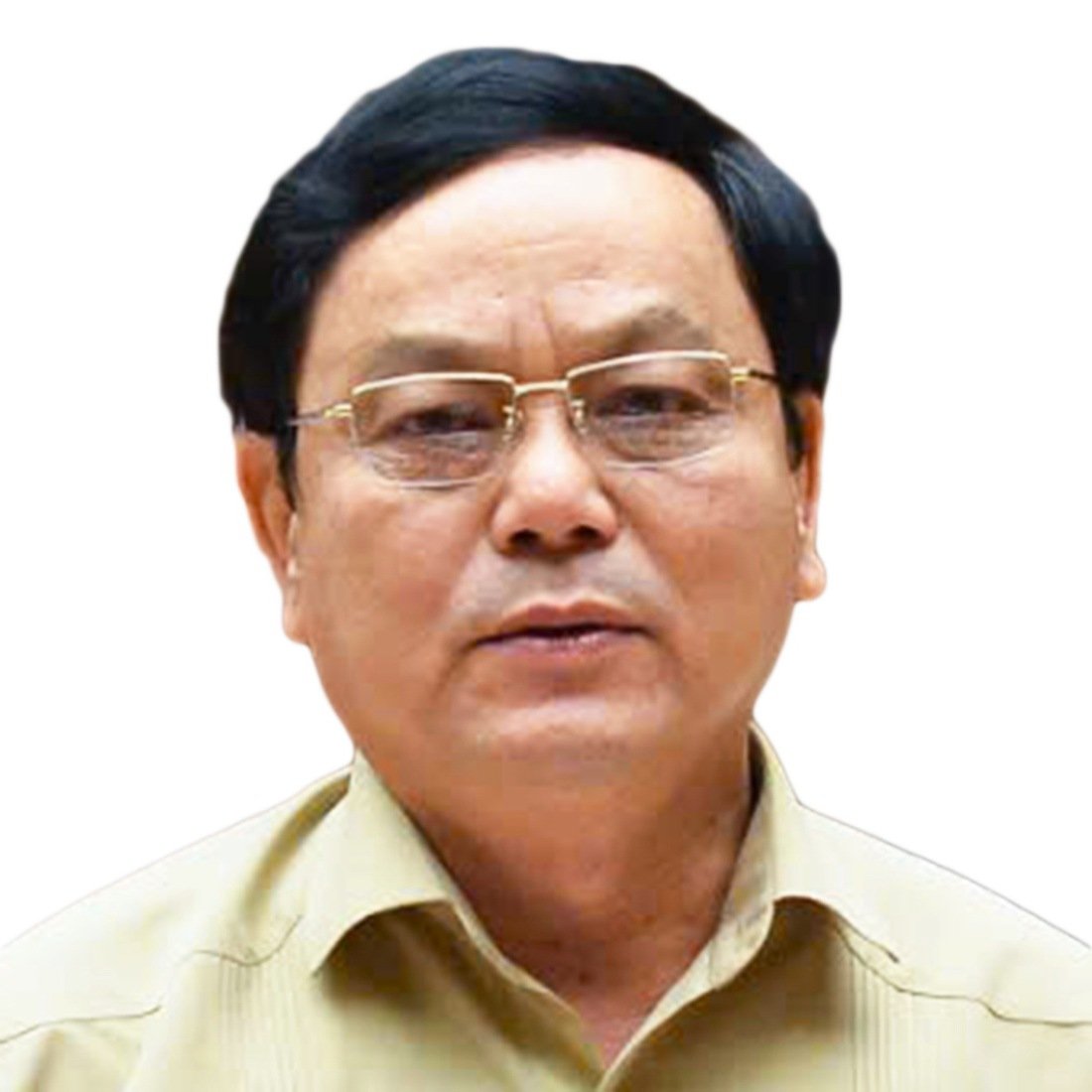
Tuoi Tre further discussed this concern with delegate Thang.
* What is the cause of your above concern?
- When arranging at the provincial level, not organizing at the district level, it leads to a large number of provincial and district level cadres and civil servants having to be arranged at the commune level. This creates great pressure on the arrangement of grassroots cadres and civil servants.
According to regulations, leaders of commune-level administrative units are currently arranged according to position standards in terms of rank, qualifications, degrees, etc.
This arrangement, according to some opinions, does not take into account the actual working capacity of commune-level cadres. Meanwhile, many people have received basic training, have spent many years working in practice and have been elected to hold important positions at the grassroots level.
More than anyone else, this team is very knowledgeable about the management of commune-level government and the actual local situation. But after the arrangement, it seems that the number of commune-level cadres will be placed at the end of the line, meaning that when all provincial and district cadres are returned, if there are still positions, commune-level cadres will be arranged; otherwise, they will leave their leadership positions, and if they are used, they will be sent to their departments or become deputy.
In addition, the group of cadres and civil servants who have difficulty choosing whether to stay or go, and the group who after the province merger have to move to a new workplace far away from their families. The problem of balancing work, family, accommodation, travel... is difficult, so they may ask for leave.
* So how will this affect the arrangement of cadres, especially cadres in mountainous areas as you said?
- This will first of all not properly assess the capacity and job requirements when managing the state at the commune level for the team of experienced and capable cadres. On the other hand, it also creates a comparison mentality of why not add criteria for people with capacity and practical experience in local management.
A very worrying point is that many commune-level cadres in ethnic minority areas have been trained and practiced for many years. Currently, with the policies to encourage and support retired cadres, some of them see the immediate benefits and resign.
Thus, in the future, the structure of ethnic minority cadres will be affected and there will not even be a part of ethnic minority cadres trained to participate in management, avoiding the emergence of complex problems in ethnic minority communities. Therefore, it is necessary to carefully consider and evaluate this content.
The fact that officials leave because of moving far away will cause an imbalance in the regional staff. In the merged locality, that is the administrative center, the staff will not be affected, but the staff from other provinces who have to move will be affected too much. The number of staff asking to return is very large, at that time the staff structure in the new province and the regions will begin to have differences.
* So, according to you, how should we arrange personnel to ensure harmony in a streamlined context?
- I strongly support the reorganization process. The Party and State have policies to encourage officials and civil servants of retirement age to have the opportunity to arrange for young officials to take over.
However, this does not mean that it is easy to accept cases of long working age, capacity and practical experience without retaining them. This will result in losing cadres, including those who are closely tied to the locality.
To do this, there must be a mechanism to evaluate their performance capacity when arranging staff and to retain a number of truly capable, well-trained and experienced communal-level staff in grassroots management.
I think it is possible to study the mechanism to set criteria for current commune-level cadres holding the positions of secretary, deputy secretary, chairman of the People's Committee, People's Council, and Fatherland Front through elections and practical testing. If they meet the standards and qualifications, they can be given priority to be assigned as new commune and ward cadres.
Or there are also opinions about why at the central level, when arranging ministries, the number of deputy ministers is kept equal to the sum of the number of deputy ministers of the ministries, while the number of deputy ministers of the new commune-level administrative units is limited according to the standards of the Law on Local Government.
Such a framework narrows the number of cadres, leaving no room for positions. While we can increase the number of deputies now, we will compete to gradually reduce them over the next 5 years.
Support to retain staff
* You said there needs to be a policy to retain good staff, what is the solution to support that, sir?
- We have had a humane policy when the National Assembly passed a 44,000 billion VND financial package to support officials and civil servants who have quit their jobs due to mergers. So now we should also study a strong enough financial package to support and encourage young, energetic officials to overcome the difficulties of traveling and being away from their families to retain capable and experienced officials in the state government system.
Otherwise, if officials cannot overcome family difficulties, they will quit their jobs and move to the private sector. This could be a brain drain, a huge waste of resources.
That regime includes support for housing, accommodation, transportation, so public housing, social housing, financial support... for them to have the conditions to continue their journey when they return to their new positions to contribute to the common development cause. The Government needs to study this to soon have specific mechanisms and policies.
* There are opinions that in addition to legal reform, the apparatus needs to reform salaries to encourage officials?
- The issue of salary reform is not only to serve the merger issue. This is an issue to ensure attractiveness, a measure to retain talented officials in the public sector and a long-term strategy. Currently, officials' salaries are not enough to live on, talented officials will go to work outside.
Source: https://tuoitre.vn/can-cuoc-cach-mang-giam-thu-tuc-go-rao-can-kinh-doanh-20250618081200756.htm










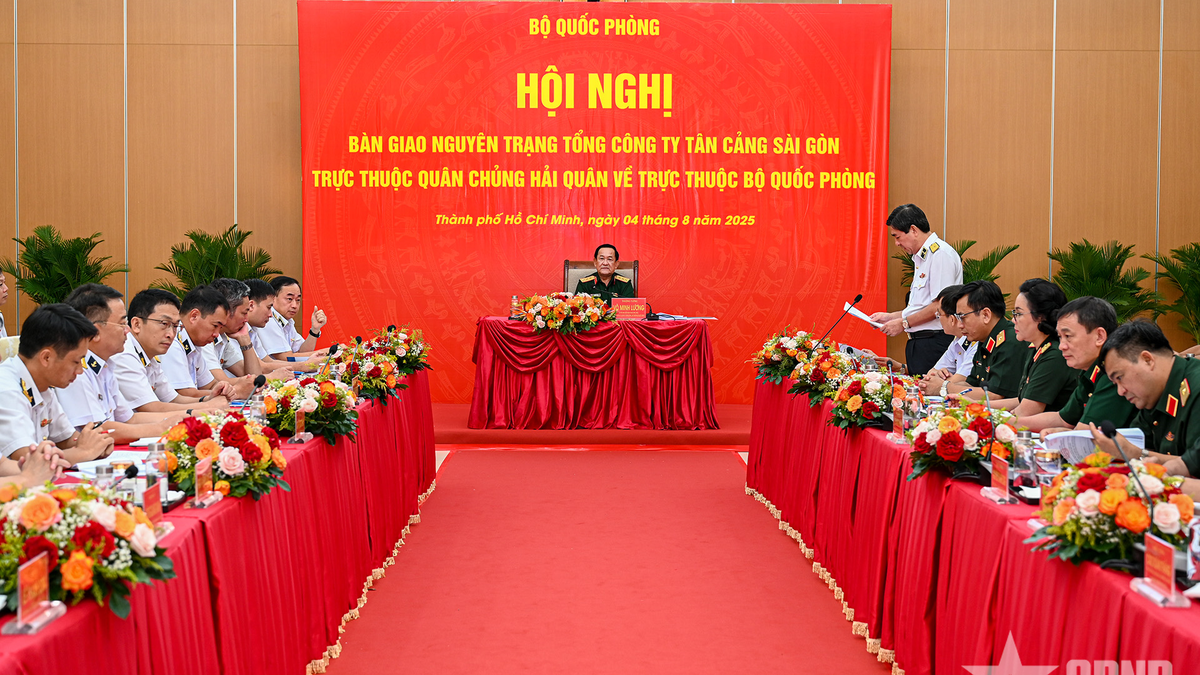
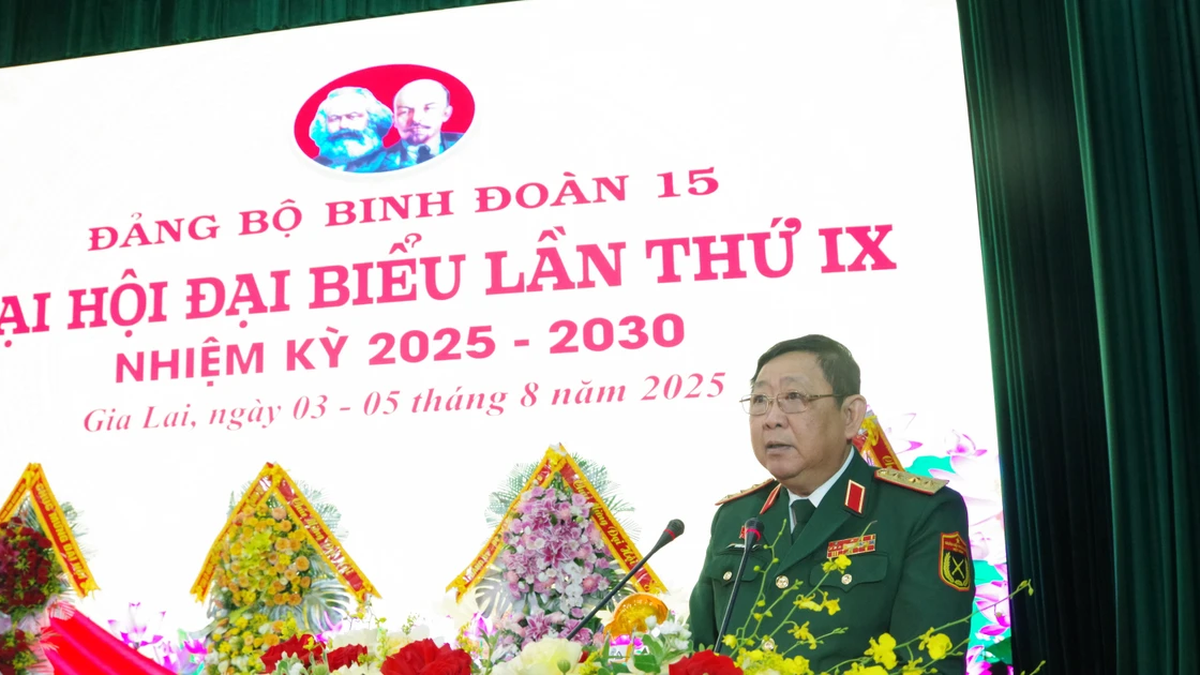













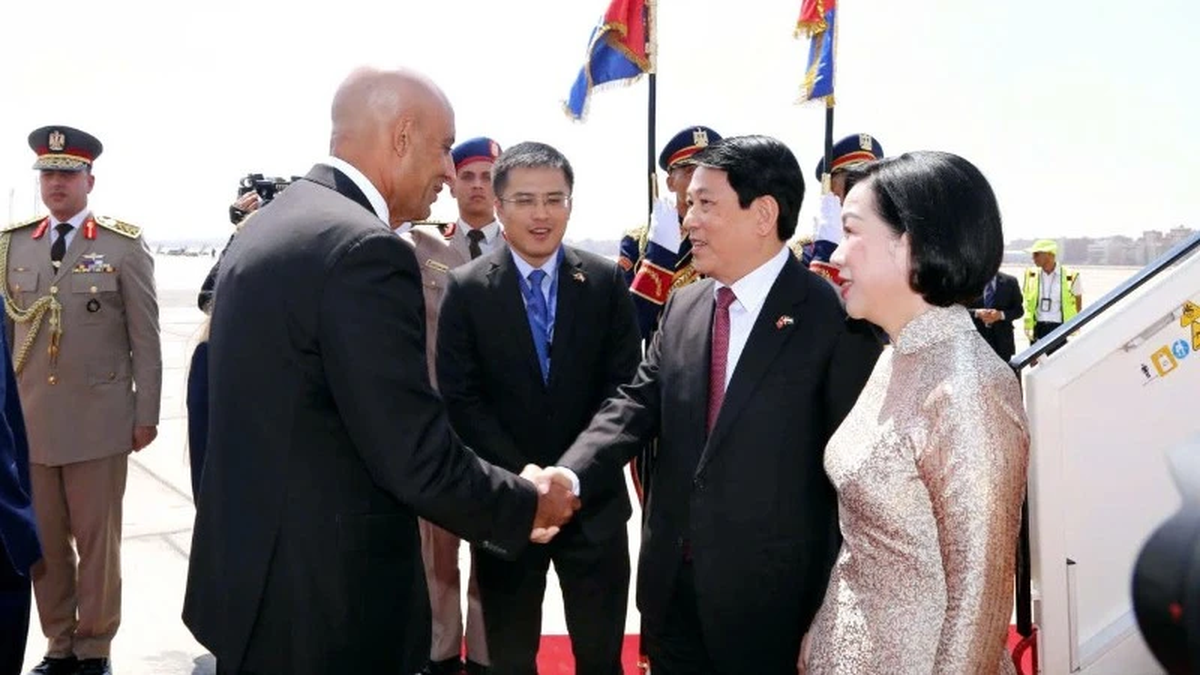


































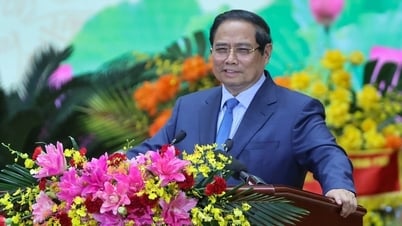
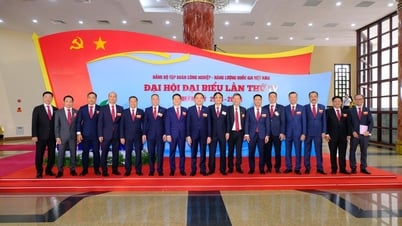




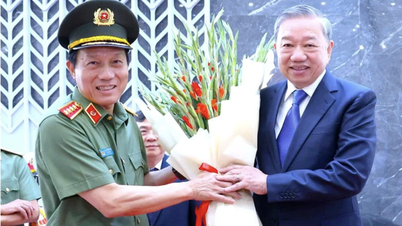
![[Infographic] Traditional friendship and good cooperation between Vietnam and Egypt](https://vphoto.vietnam.vn/thumb/402x226/vietnam/resource/IMAGE/2025/8/4/9a2112b4046e4c128fdcb5403489866a)


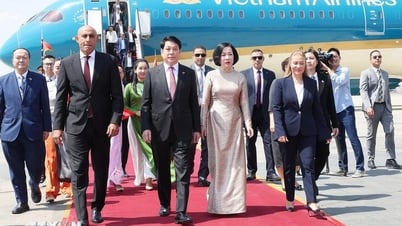

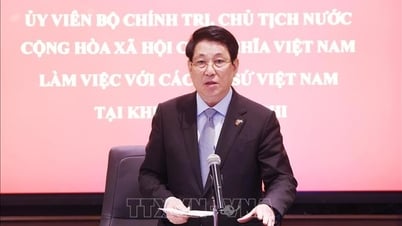

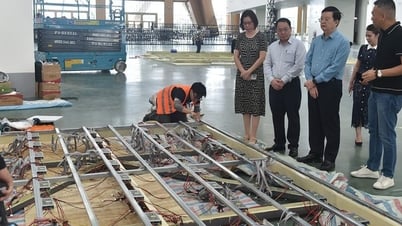


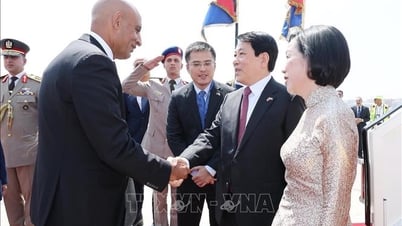























Comment (0)